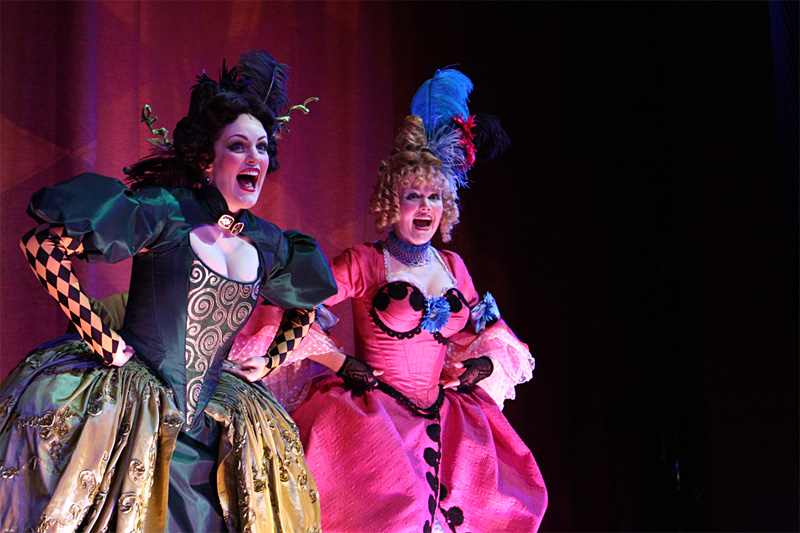That’s not “gypsy” as in Romani, but “gypsy” as in a born-in-a-trunk traveling entertainer. In Randy Rogel’s new musical, Frederick and his father land in a small middle-European town somewhere between Ruritania and Grand Fenwick, where his exact resemblance to the obnoxious Prince Alfonse gets him stuck between an assassination plot and a princess forced to wed against her will.
Both the Prince and Frederick are played by Eric Ankrim, and in the show’s cleverest and funniest moments, Ankrim switches lightning-quick between the roles, at the climax even swordfighting with himself. He’s supported by a nimble cast: Frederick’s father Leo and lady-in-waiting Marie are played by John Patrick Lowrie and Joanne Klein, two longtime local troupers; Richard Ziman is the creamily villainous regent, Sergei; Katherine Strohmaier adds snap as the tomboyish Princess Anisette. There’s no question Village Theatre’s done its best by the show, especially with Jeffrey Cook’s pop-up-storybook sets and, most startlingly, Karen Ledger’s Dr. Seuss-on-mushrooms costumes.
But at a performance of a new musical, I hope for two things: to hear something fresh I haven’t heard before, and to leave humming something. For me, The Gypsy King disappointed on both counts; your mileage may vary. Writing a show tune that not only grabs your attention on its own but also contributes plot propulsion to the whole must be just about the hardest theatrical task to pull off, but that doesn’t justify the fact that Rogel, both in his book and his music, seemed at nearly every turn to reach for the easiest, most orthodox option. The switched-babies denouement (oh, come on, I’m not spoiling any surprises here) is cribbed from The Gondoliers (1889), which W.S. Gilbert recycled from HMS Pinafore (1878), which parodied Verdi’s Il trovatore (1853), based on a Spanish play of that title (1836)…how far back should we continue? Comparatively, the vaudeville/Dixieland-flavored score takes a daring leap into modernity, landing at least within the past century. The shtick is pure Mel Brooks borscht-belt; an ironic song about class is almost close enough to the one in Chicago to be legally actionable. The borders separating theatrical tradition and archetype from lazy cliché are pretty thin, and Rogel, a former writer/composer for Disney in SoCal, wanders among these realms as nonchalantly as his title character.







